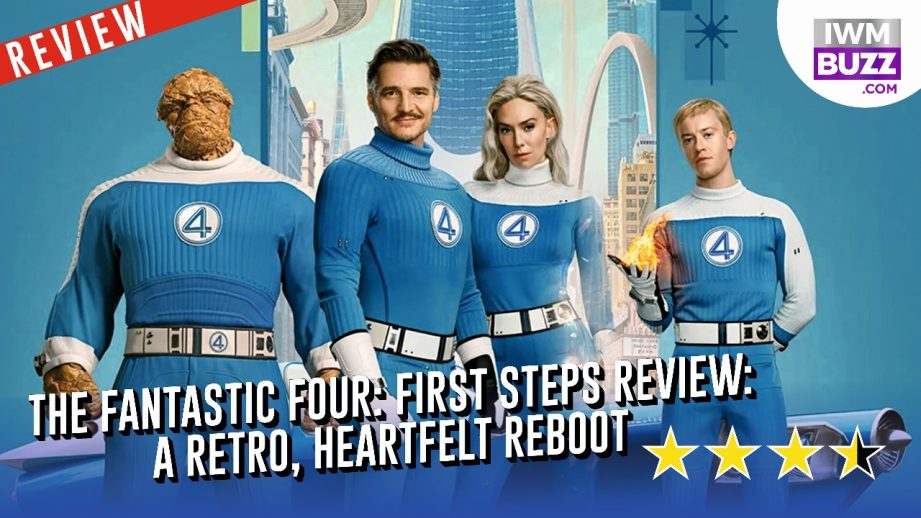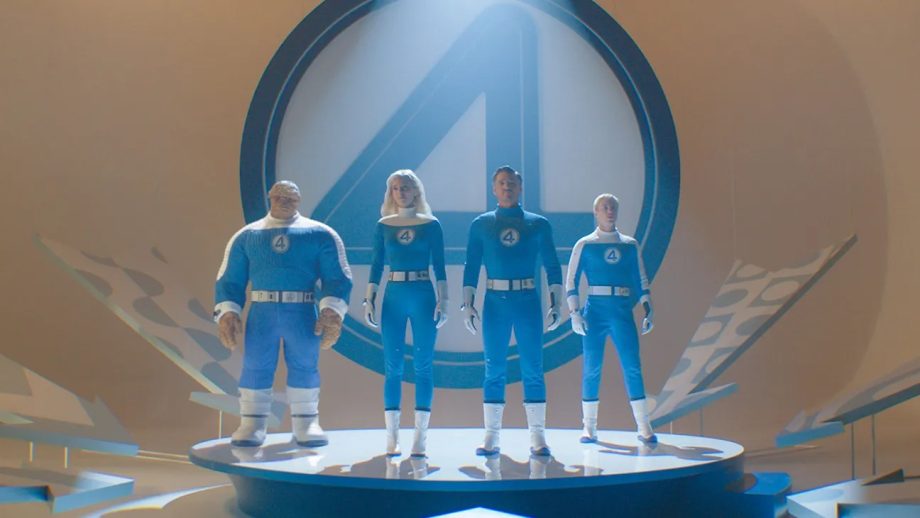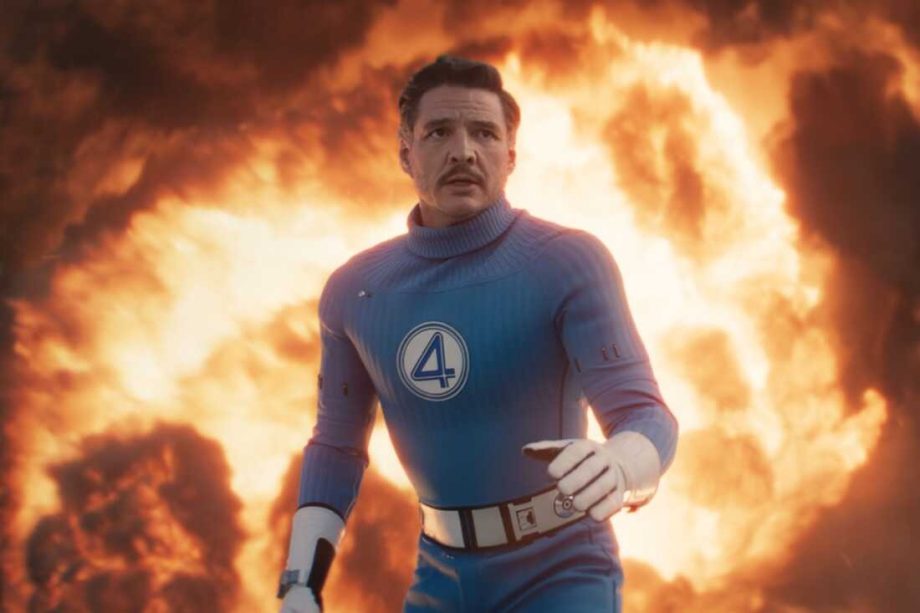
Somehow, Fantastic Four pulls off what most superhero films don’t even attempt anymore: it lets its characters be bizarre, flawed, and deeply likable without insisting on their importance. This isn’t a movie that shouts about legacy or burden. It’s a film that hands you a cup of coffee in a sci-fi kitchen and says, “Welcome to the weirdest family in New York.”
The film, directed by Matt Shakman, marks Marvel’s bold return to its original super-family with a fresh lens and a playful retro touch. With a script shaped by Josh Friedman, Eric Pearson, Jeff Kaplan, Ian Springer, and Kat Wood, the film balances heartfelt character dynamics with cosmic spectacle.

From the start, there’s a deliberate awkwardness to their world. It’s a version of 1960s New York where everything is glossy, smoke-free, and oddly cheerful. The Four live together in a high-tech apartment that looks like it was furnished by a sitcom production designer with a heavy budget and no irony. They wear soft blue uniforms and argue over breakfast. It’s silly, and that’s the point.
Pedro Pascal’s Reed Richards isn’t a tragic genius. He’s more like a distracted dad with stretchable arms and questionable judgment. Vanessa Kirby’s Sue Storm holds the center. She’s pregnant, tired, and far more competent than anyone around her. There’s something quietly moving in how she carries herself, like she’s holding the whole group together with invisible strings long before any force field kicks in.

Then there’s Johnny, played by Joseph Quinn, who behaves like a teenager who discovered he could set things on fire and never emotionally recovered. His energy is matched and then softened by Julia Garner’s Silver Surfer, whose arrival on Earth brings with it a hint of cosmic threat and unexpectedly, flirtation. Meanwhile, Ben Grimm, played with perfect understatement by Ebon Moss-Bachrach, lumbers through the film with a face like a boulder and a heart that’s wide open. His scenes with Natasha Lyonne’s schoolteacher are gentle and bruised. He knows he scares people. He still hopes they’ll stay.
The film flirts with big stakes. Galactus is coming, cities are at risk, the usual end-of-the-world fare. But it never loses track of the smaller, stranger moments. Ben reading Dr. Spock’s baby book while pacing in the night. Reed staring blankly into space while Sue times contractions. A tiny robot trying and failing to be helpful. These scenes have more staying power than any collapsing skyline.
What the director and writers seem to understand is that superhero stories don’t have to be metaphors for gods or trauma or power. Sometimes, they’re just about four people trying to make it work in a world that makes no sense. The characters here aren’t angsty or invincible. They’re awkward, affectionate, and not entirely sure what they’re doing. That makes them feel, ironically, more real.
Fantastic Four doesn’t change the superhero game, and it doesn’t try to. It simply tells a story about a family that happens to be superpowered, messy, hopeful, and a little absurd. It’s a film that laughs with its characters, not at them. That kind of honesty might be the boldest thing a Marvel movie has done in years.
IWMBuzz rates it 3.5 stars.
